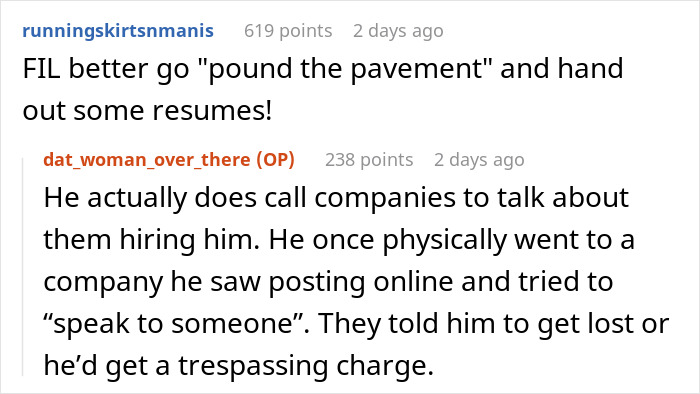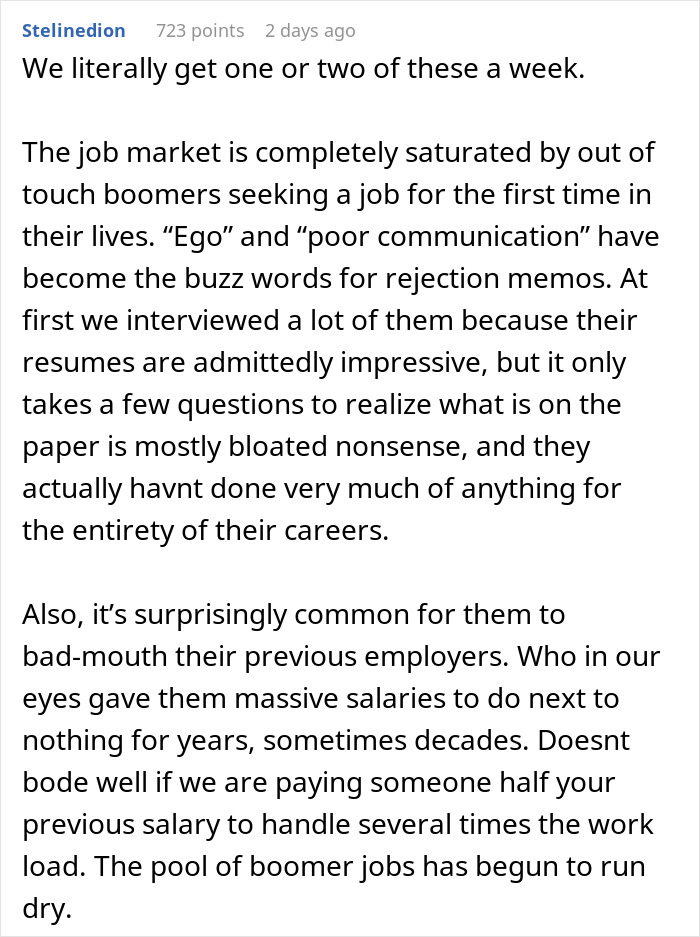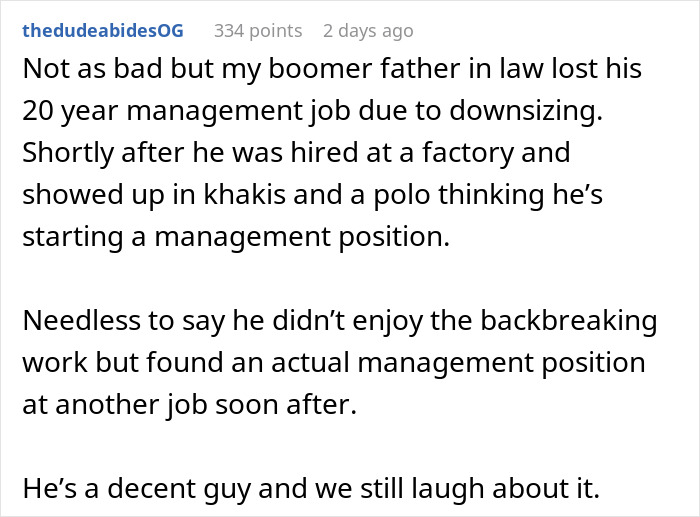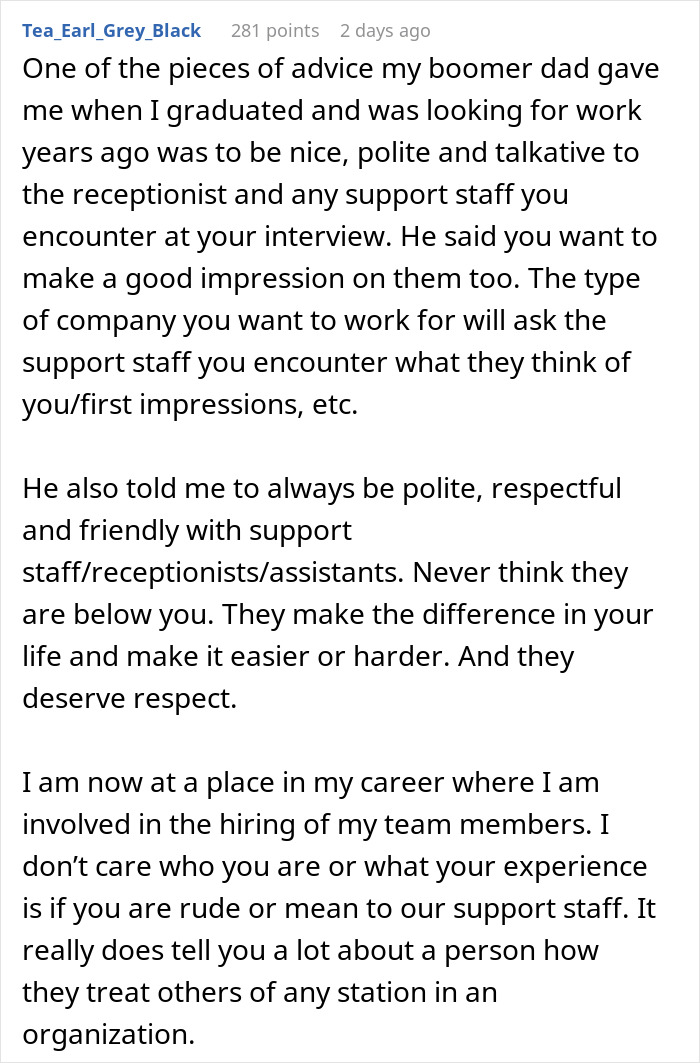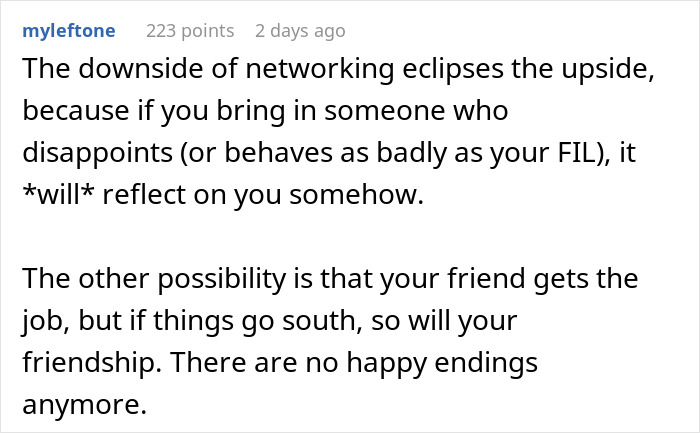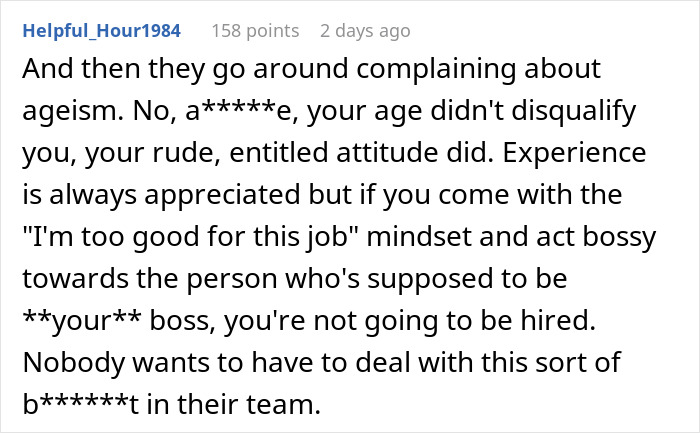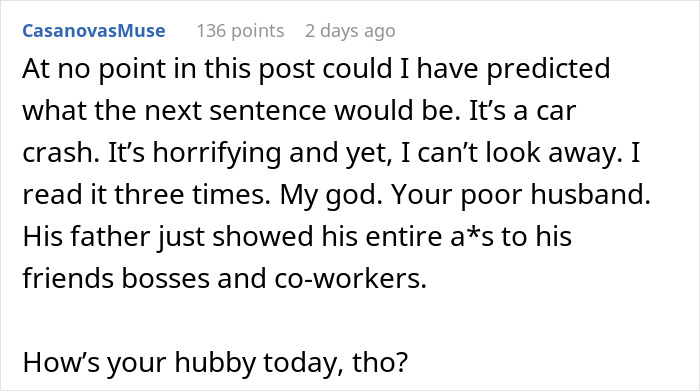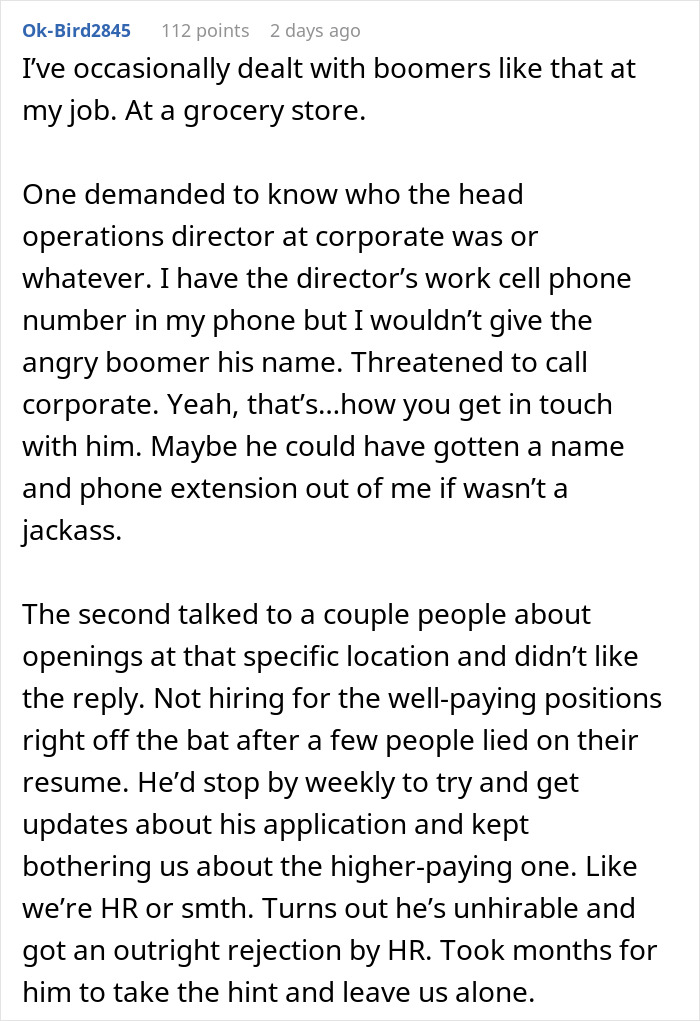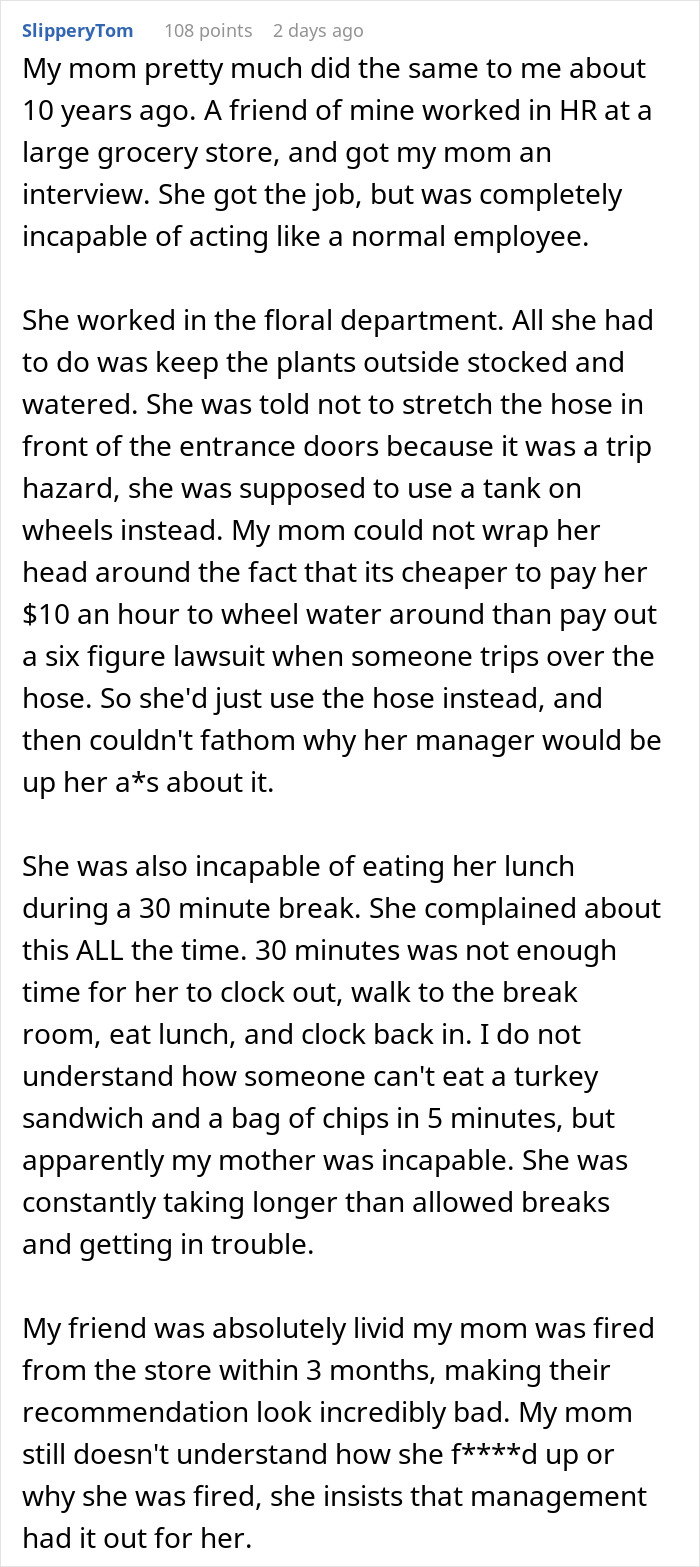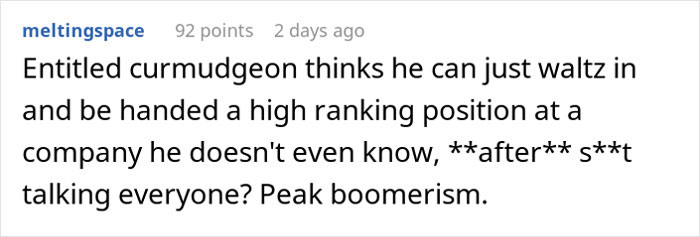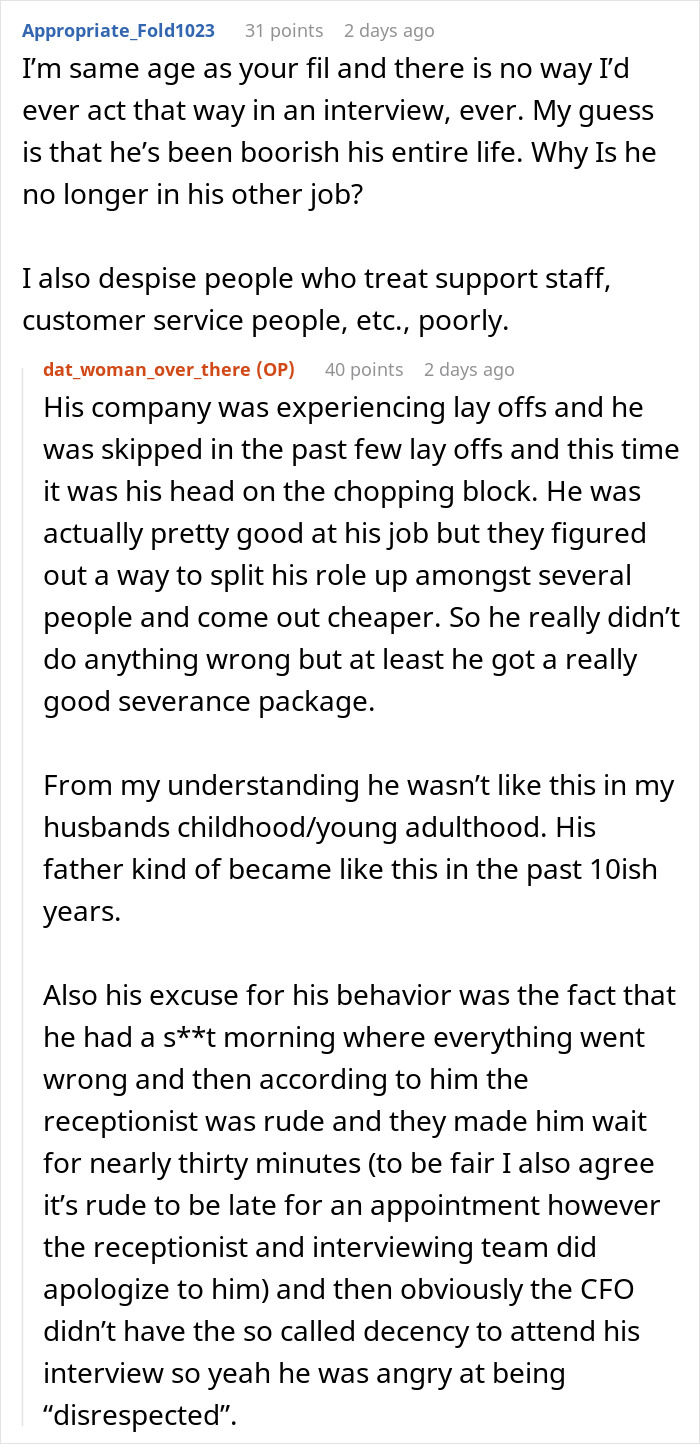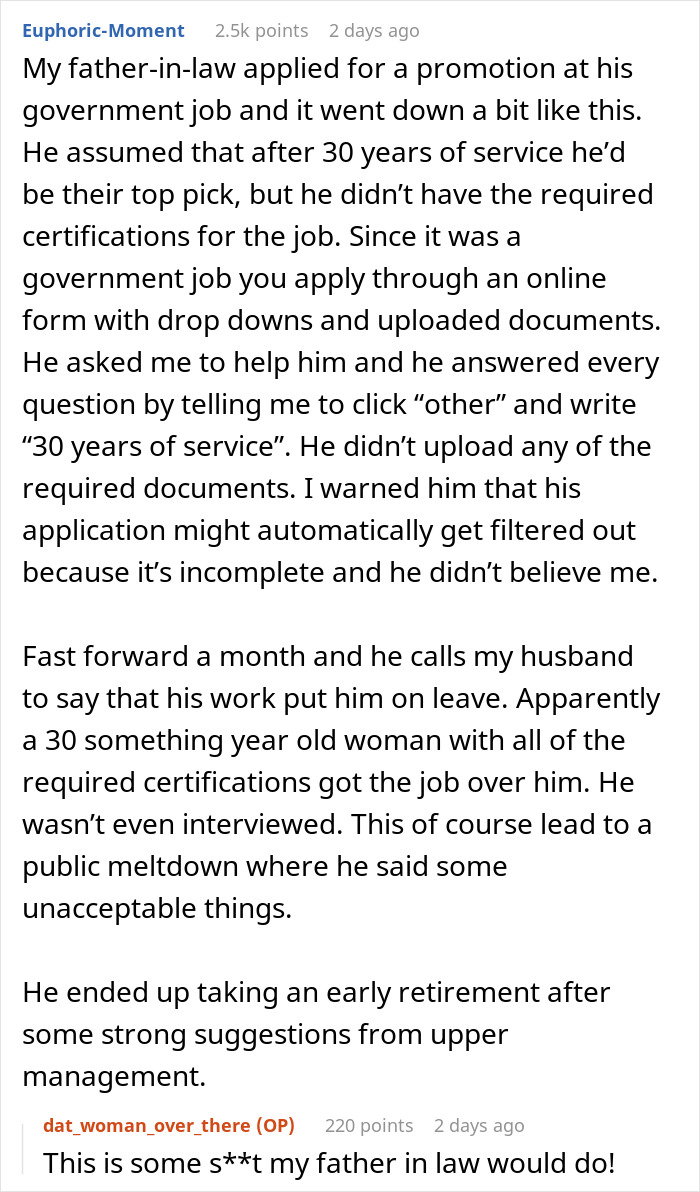While the process of finding a job got easier for the younger folk, the opposite happened for the older generation. Used to just ‘showing up and asking for a job’ now they have to deal with crafting a flawless résumé, finding offers online, having a LinkedIn presence, and some degree of digital skills. All of this gets harder to navigate with age, and employers who often choose younger workers over those close to retirement aren’t making it easier.
Redditor dat_woman_over_there’s 59-year-old father-in-law who lost his job after working 38 years at a company, struggled for two months before his son set up an interview at his job to help him. However, instead of being grateful, he, for some reason, channeled his inner Boomer, embarrassing him in front of colleagues and management.
Finding a job for older adults is significantly harder than for younger people
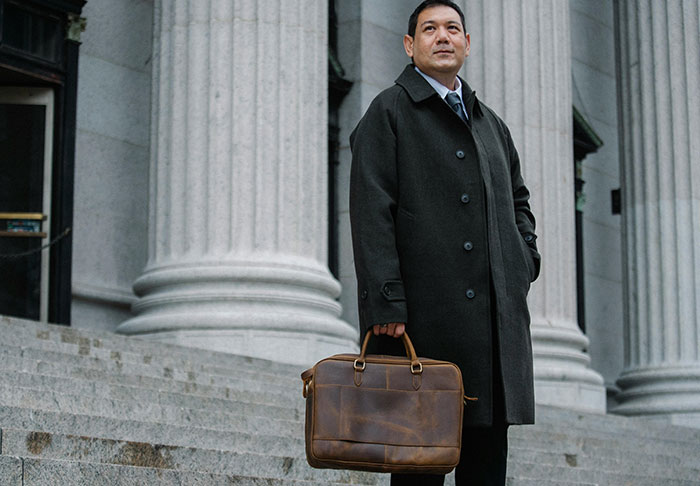
Image credits: Sora Shimazaki (not the actual photo)
This son set up an interview for his father at the company where he works to help, which he completely wasted with his Boomer mindset
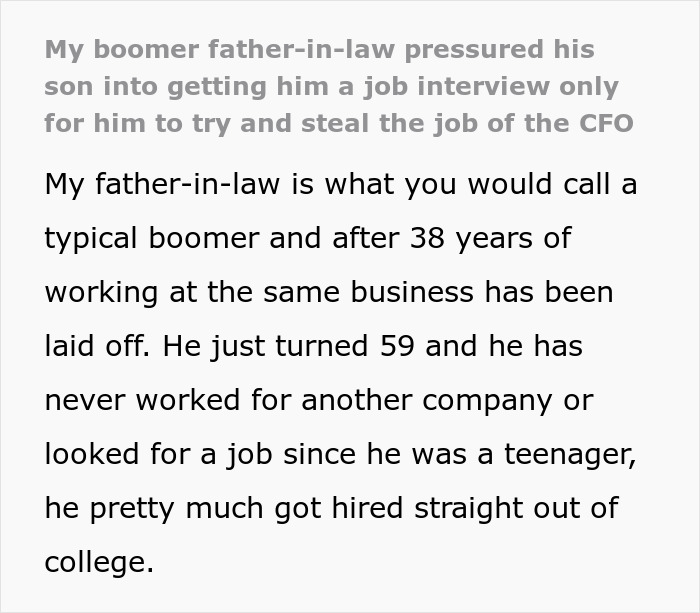

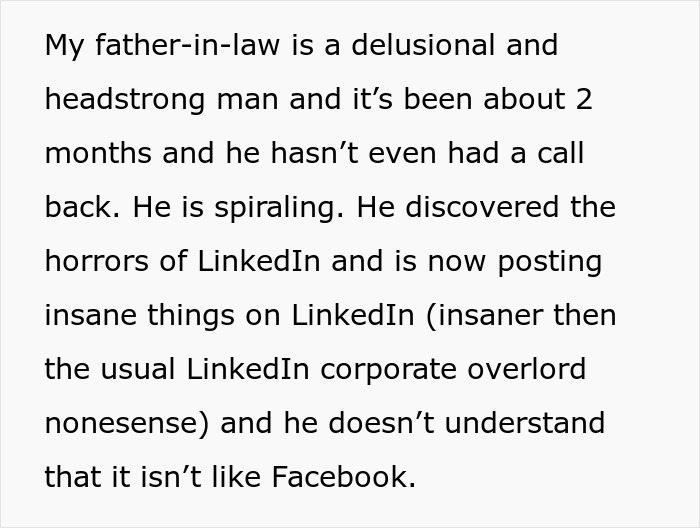
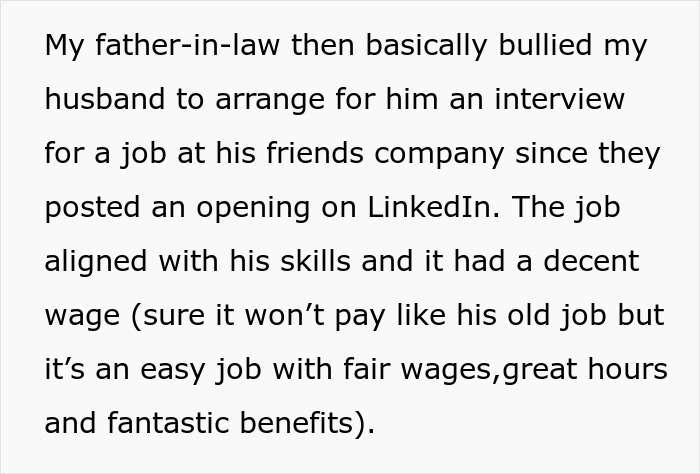

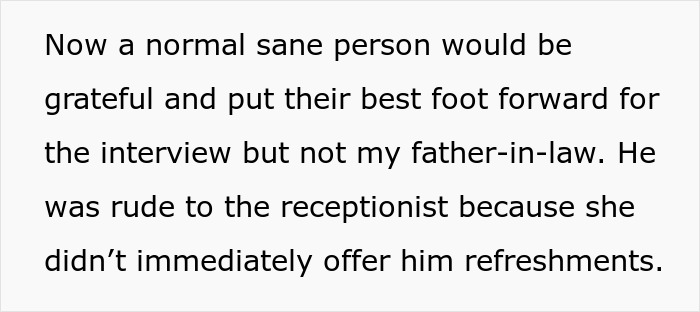
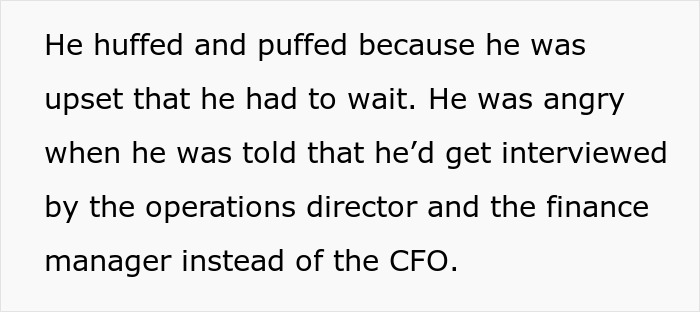

Image credits: Gustavo Fring (not the actual photo)
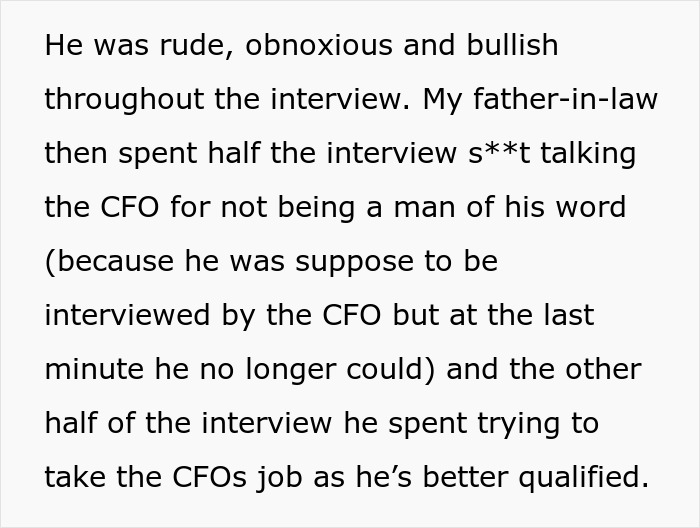
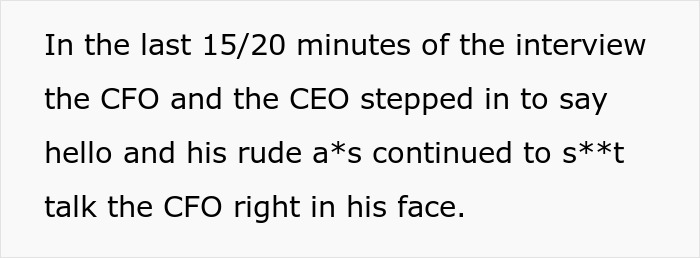
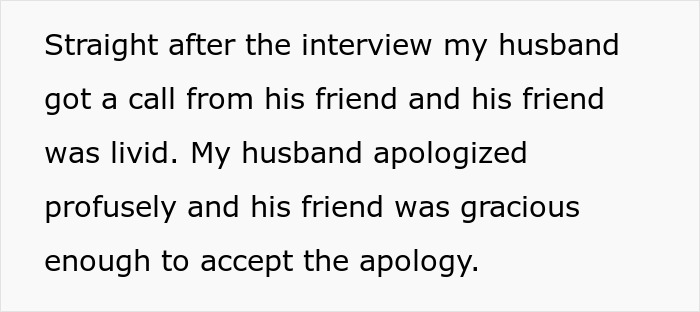
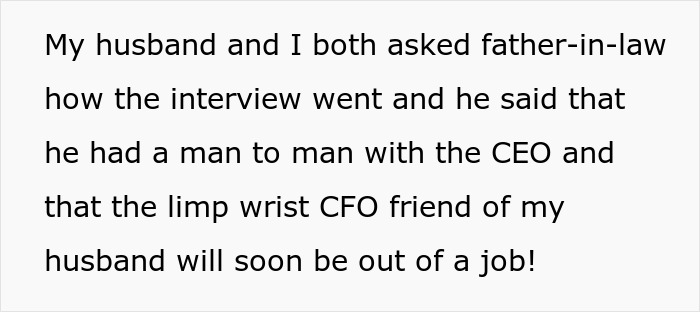
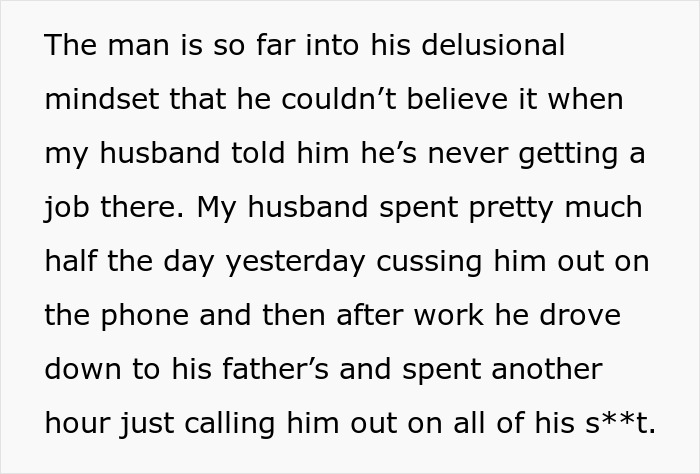
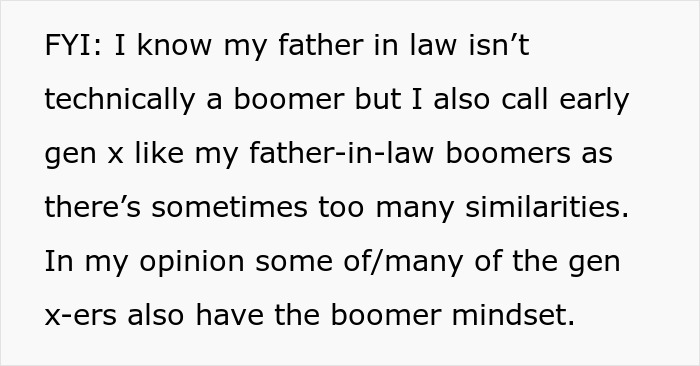

Image source: dat_woman_over_there
The odds that an older employee would be employed are 42% lower than for young people

Image source: SHVETS production (not the actual photo)
Half of people in their 50s lose their jobs at least once, and if an older person is laid off, they are significantly more likely to suffer long-term unemployment than other age groups. In fact, the odds that an older employee would be employed are 42% lower than for younger people.
Age discrimination is a big part of it, with 74% claiming that they have seen or experienced it. This number is at its highest since the American Association of Retired Persons started tracking this data in 2003. Even though the Age Discrimination in Employment Act protects U.S. workers against discrimination based on age, the odds are often against older job seekers.
One of these odds is automatic tracking systems that sort résumés according to dates and missing skills. If, for example, digital skills aren’t listed, their CV can be immediately rejected, even though these abilities are easily taught.
In addition, older workers may be at a disadvantage, as some might feel less confident in finding work, especially because of their age. Therefore, they might put less effort into their search, thinking, “Why bother? No one’s going to hire me anyway.”
To find a job, some older adults try to hide any signs of their maturity and age

Image source: RDNE Stock project (not the actual photo)
One piece of advice that older job seekers might get to be more successful in their search is to hide any suggestions of their maturity and age. In one study, researchers sent out 8,000 fake résumés to hiring managers and tracked their eye movements. It was found that their eyes were pausing at years of employment history and the year potential workers got their education. In general, they spent more time looking at the CVs of younger individuals.
For this reason, some don’t even bother applying to positions where they ask for a graduation date in their online job offers or even avoid including graduation and work dates in their résumés. Others purposely color their hair before interviews and put their social media and information on their CVs to show employers that they’re up to date with modern trends.
Another useful recommendation is to apply to companies committed to hiring older workers. More than 1,000 organizations, like Humana, Microsoft, Marriott International, and McDonald’s, have signed on to the AARP Employer Pledge program and promised to boost older employees reemployment.
Some red flags of age-exclusive workplaces are if their website and advertisements only showcase employees in their 20s and 30s. And if a hiring person asks too many questions about age—either in an application or an interview—that should be considered a bad sign.
They also shouldn’t comment, “I wasn’t even born when you did that work experience or went to college.” To save time and disappointment, older job seekers should look for language in job ads that specifically indicates that the company doesn’t discriminate based on age.
The author provided more information in the comments
Many readers sympathized and shared similar stories
